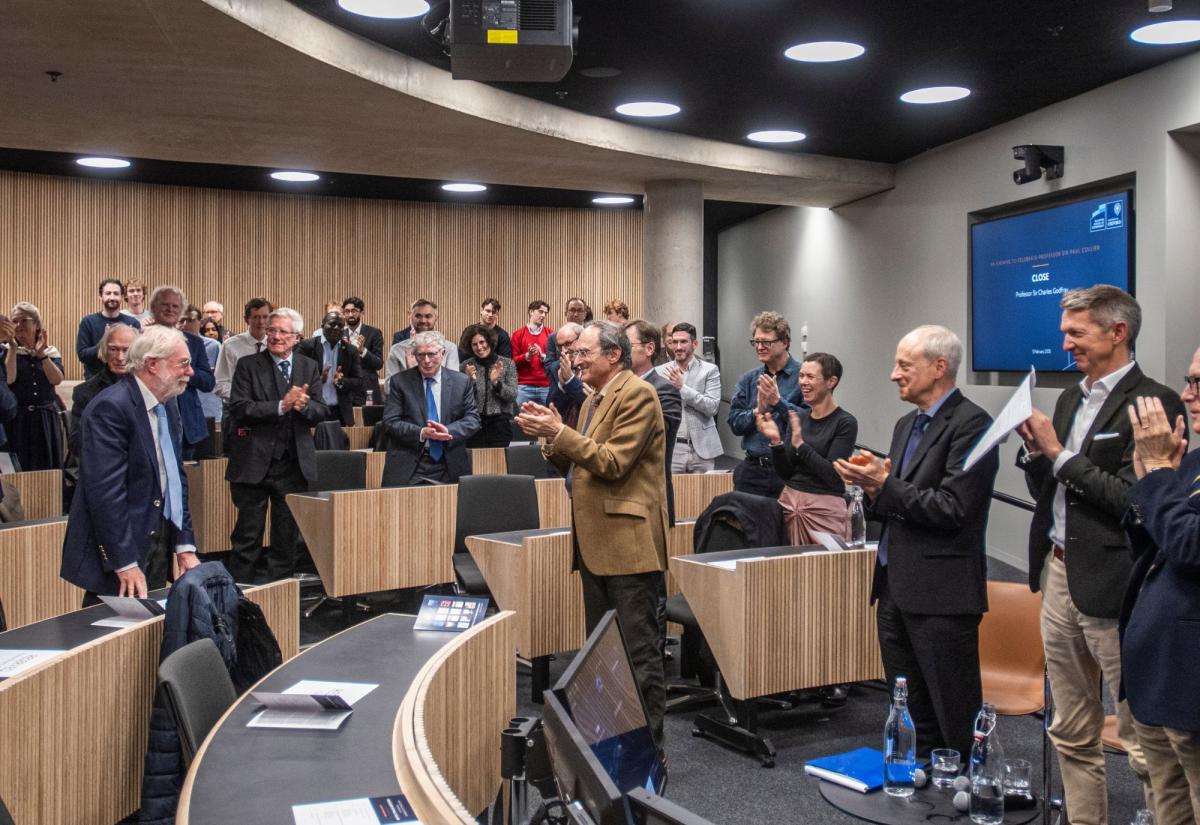On Friday 10 May, Professor Ernesto Zedillo visited the Blavatnik School of Government to deliver a public lecture on Latin America's future entitled 'Latin America: Taking off or still falling behind?'. One of the School's five Distinguished Practitioners, Professor Zedillo also gave an informal master class in the afternoon for MPP students, discussing his experiences with Dean Ngaire Woods and MPP students.
Over the course of his lecture, Professor Zedillo sought to answer whether the good news about Latin America was here to stay, or whether it was just part of a longstanding media cycle of positive and then negative coverage. He is cautiously optimistic. Despite serious problems in the region, a combination of careful economic management, freer markets and favourable global conditions has produced good results.
Latin Americans want their countries to be counted among the world's developed nations, but this ambition, he explained, had been frustrated time and time again. Now the region feels as if it is on a more secure footing, having weathered the financial crisis of 2008-2009 particularly well. Growth has averaged 4 per cent a year since 2003, per capita income is on the increase, poverty reduction is improving, and inequality as measured by the Gini coefficient has fallen substantially. But he warned against complacency, stressing that governments should take advantage of their new-found economic resilience to press ahead with reforms and investment for the future.
Prudent economic management alone will not ensure perpetual growth, he said, because commodity prices will not always remain high. Another challenge is demographics: Latin America's population is young and growing now, but eventually these young people will age and additions to the labour market will slow down (there are also serious shortcomings to be adressed in the realm of education). A third important factor is external shocks, mainly from the USA and the EU, but a future Chinese slowdown would also influence growth.
One of the greatest challenges the region faces is creating enough jobs for its young people in the formal economy. Huge numbers of people work in the informal sector, leaving them vulnerable to low wages, instability and exploitation. The reasons for this, Professor Zedillo explained, include rigid hiring and firing laws, high labour costs, poor educational quality, a lack of competition in the economy and too few incentives to entice people into formal work. This must change if the region is to attain the prosperity it desires.
A Q&A session took place after the lecture. Audience members asked questions covering a wide range of topics, including corruption, the role of women in Latin America, left-leaning leaders in the region, OPEC, trade with China and NAFTA. Professor Zedillo also spoke with great conviction about violence and drug policy in his home country of Mexico, expressing strong support for legalisation - whether or not US policy on the issue changes.
Professor Ernesto Zedillo was the President of Mexico from 1994-2000. Now a Blavatnik School of Government Distinguished Practitioner and Director of the Yale Center for the Study of Globalization, he serves on a number of commissions and boards of international organisations, including the Natural Resource Charter; the Global Commission on Elections, Democracy and Security; the Foundation Board of the World Economic Forum; and the G30, among others.



